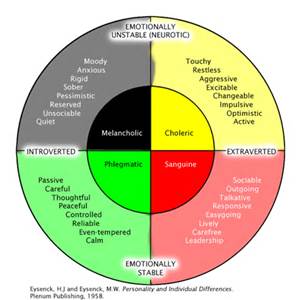A Bulldozer of Change- The Choleric
A look at the current players in the presidential field of contenders might give us a snapshot of a Choleric or two. One thing that can be said about the Choleric is that they will never accused of being mild or meek. They don’t shy away from challenge and aren’t brought to their knees by opposition. In fact, they welcome it as an opportunity to assert their position and squash anyone who shows the slightest hint of weakness. This serves them well when an individual possessing this temperament decides to begin a new business venture or project. They will carefully surround themselves with people who are well-connected, knowledgeable, and successful. When they want to accomplish something, they take no prisoners, and skillfully dominate and manipulate their success. Sounds like the kind of guy you want to have on your team right? While the Choleric is well versed with affecting change in business practices, management, and organizations, they can sometimes fall short when it comes to making personal growth and progress. This is the deal. They …








